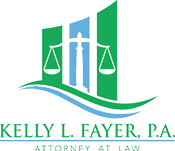
Fort Myers Guardianship Attorney
Representation in Guardianship Proceedings in Lee County
There may come an unfortunate time when a loved one is no longer able to care for themselves. If an aging relative is suffering severe mental decline or sustains a serious injury, it may be prudent to consider a guardianship. By formally appointing a legal guardian, your loved one will have someone legally responsible for protecting their interests.
At The Law Office of Kelly L. Fayer, P.A., we are committed to helping families navigate these difficult conversations. Should you believe this arrangement is necessary, our Fort Myers guardianship lawyer can represent you in court proceedings and advocate for you and your loved one every step of the way. Our firm has extensive experience handling these matters and understands how Florida courts evaluate these cases. We are also prepared to help you favorably resolve any complications or disputes that may arise.
Schedule an initial consultation with a Fort Myers guardianship lawyer by contacting us online or calling (239) 208-0189.
What Is a Guardian in Florida?
A legal guardian has the power and permission to make decisions on behalf of the person they are looking after (known legally as the “ward”). Some states separate control over a person’s well-being from control over their finances and assign them to two distinct roles, but in Florida, a legal guardian can be responsible for both.
A legal guardian has many responsibilities, including:
- Ensuring the ward’s basic needs (such as food, water, medicine, and shelter) are met
- Paying the ward’s bills
- Managing the ward’s assets
- Filing the ward’s taxes
- Making decisions about the ward’s living arrangements
- Making decisions about and facilitating the ward’s healthcare
- Managing government benefits, such as Medicaid
Who Can Serve as a Guardian?
Florida courts look favorably upon close family members serving as their loved ones’ guardians. If the prospective guardian lives in Florida, they need only be at least 18 years old and capable of handling the position’s many responsibilities.
A qualified non-Florida resident who is at least 18 years old can also become a guardian of a Florida-based ward if:
- They are related to the ward
- They have not been convicted of a felony
Regardless of Florida residency, a guardian must pass a background check, meet training and reporting requirements imposed by the state, and be represented by a lawyer. Our Fort Myers guardianship attorney can determine whether you qualify to serve as a guardian and is willing to represent you if you do.
What Factors Does The Court Consider When Appointing A Guardian In Florida?
When it comes to appointing a guardian in Florida, the court carefully evaluates various factors to ensure the best interests and welfare of the individual who is in need of guardianship. These considerations play a crucial role in determining who will be entrusted with the responsibility of making decisions on behalf of the incapacitated person. Understanding the factors that the court takes into account is essential for anyone navigating the guardianship process.
Some of the factors considered include the following:
- Capacity Assessment: The court will assess the capacity of the individual to determine if they are capable of making decisions regarding their personal and financial affairs. If the court determines that the person lacks the capacity to make such decisions, a guardian may be appointed.
- Need for Protection: The court considers whether the person is unable to adequately manage their personal and financial affairs, and if there is a need for someone to protect their interests and ensure their safety and well-being.
- Qualifications of the Potential Guardian: The court will evaluate the qualifications of potential guardians to determine their ability to fulfill their duties and responsibilities effectively. The person's relationship to the person, their character, and their readiness to function as a guardian are all taken into consideration.
- Preference of the Individual: If the person in need of guardianship has expressed a preference for a specific individual to serve as their guardian, the court will consider this preference, unless it is not in their best interests.
- Least Restrictive Alternative: The court will consider alternatives to guardianship, such as the use of advance directives or supportive decision-making arrangements, to determine if a less restrictive option can adequately protect the individual's interests.
How Does the Guardianship Process Work in Florida?
The process for establishing a guardianship in Florida is fairly straightforward and can be accomplished relatively quickly if there are no conflicts or complications. In some cases, you may be able to secure a guardianship within 90 days, but you may also be able to obtain an emergency temporary guardianship until the case is resolved. Under Florida law, emergency guardianships may by appointed if there is a fear of imminent physical or mental danger or the safety or property of the incapacitated person is in jeopardy. The duties of the appointed emergency guardian will be laid out in the court order and their authority will expire 90-days after the appointment or when a permanent guardian is appointed.
Our Fort Myers guardianship attorney can assist you with each stage of the petitioning process. First, the court must agree the prospective ward is “incompetent.” Upon receiving a petition to determine capacity, the court will assemble an “examining committee,” which must include at least one psychiatrist or physician; one person with knowledge of the incapacity; and one professional with appropriate expertise, such as a registered nurse, licensed social worker, gerontologist, or other physician or mental health professional.
The committee must be appointed within five days after the guardianship petition was received. After they have been appointed, the committee will meet the prospective ward, the prospective ward’s doctor, and members of their family. If the prospective ward does not already have a legal representative, the court will appoint an attorney to advocate for them. The examining committee will submit its findings to the court, which will subsequently decide whether a guardianship is necessary.
Should the court agree a guardianship is warranted, you will need to submit an additional petition requesting the appointment of a guardian. You can nominate someone else to serve as the guardian or ask to become the guardian yourself.
You will need dedicated legal representation if the court-appointed examining committee does not believe your loved one is incompetent. You may also encounter problems if other family members disagree over who should serve as the ward’s guardian. At The Law Office of Kelly L. Fayer, P.A., our guardianship lawyer in Fort Myers has the skills and experience required to capably handle these disputes.
If you are ready to start the process of seeking a guardianship for your loved one, do not hesitate to call (239) 208-0189 or contact us online. We serve clients in Bonita Springs, Cape Coral, Fort Myers, Estero, Lehigh Acres, and North Fort Myers.
Guardianship of a Minor
Under Florida Law, the biological or adoptive parents of a minor are considered their “natural guardian” until the minor reaches the age of 18. When parents are unable to act as guardian, whether due to incapacity or death, or when a child has received an inheritance or settlement that exceeds $15,000, the court can appoint a guardian ad litem to represent the child's best interests. When parents or the “natural guardians” cannot care for a minor, a person who steps in to act as guardian of the minor must be impartial to avoid conflicts of interest. They can be a responsible adult over the age of 18 or a court-appointed attorney or certified volunteer that works on behalf of the court to make recommendations as to the child's best interests.
Guardian Advocacy
In the state of Florida, guardian advocacy is used in lieu of full guardianships to provide persons over the age of 18 who have developmental disabilities with a legal advocate who has decision-making authority. Like with full guardians, the authority of a guardian advocate is outlined in a court order and can include fiduciary and medical decisions. Guardian advocates are still subject to court oversight, particularly on significant decisions involving the residence of the individual.
Under Florida law, “developmental disability” includes a diagnosis of certain medical conditions, such as Down syndrome, cerebral palsy, and autism, that will continue indefinitely and is a significant impediment.
Our Fort Myers guardianship lawyer recognizes the sensitivity of these conflicts as well as what is at stake. Should a dispute jeopardize a necessary guardianship, we will work to secure a favorable, just outcome as quickly and painlessly as possible.
What Are The Costs Associated With Establishing And Maintaining A Guardianship?
The costs associated with establishing and maintaining a guardianship in Florida can vary depending on several factors. While it's important to consult with a qualified Fort Myers guardianship attorney for specific details and an accurate estimate, here are some expenses you may want to consider:
- Court Filing Fees: When initiating a guardianship proceeding, there are court filing fees that need to be paid. These fees cover the administrative costs associated with processing the necessary legal documents.
- Guardianship Attorney Fees: Working with a guardianship attorney is highly recommended to navigate the complex legal requirements. The attorney's fees will depend on various factors such as the attorney's experience, the complexity of the case, and the amount of time and work involved.
- Guardian Ad Litem Fees: In some cases, the court may appoint a guardian ad litem to represent the best interests of the incapacitated person. The guardian ad litem's fees are typically paid by the person initiating the guardianship or from the assets of the estate.
Evaluation and Assessment Costs: The court may require medical, psychological, or other professional evaluations to determine the individual's capacity and needs. The cost of these evaluations will depend on the nature and extent of the assessments required. - Annual Reporting Fees: Once guardianship is established, the guardian is typically required to submit annual reports to the court regarding the status of the ward and their financial affairs. There may be associated fees for filing these reports.
The cost to establish and maintain guardianship can also vary depending on how complex the case is and the needs of the incapacitated person. Ongoing costs may also be incurred for the duration of the guardianship to cover the guardian's expenses related to managing the person's affairs, such as reasonable compensation and reimbursable expenses.
For a more accurate estimate of the costs associated with establishing and maintaining a guardianship in Florida, be sure to speak with an experienced guardianship lawyer in Fort Myers who can evaluate your circumstances and provide personalized guidance.
Please consult a qualified guardianship attorney in Fort Myers for more precise costs associated with establishing and maintaining guardianship based on your specific situation. Contact The Law Office of Kelly L. Fayer, P.A. online or call (239) 208-0189.

-
"I would highly recommend her for any estate, wills, and preplanning, should an unexpected incident happen. She was kind, took her time, and explained everything in lawyer ease!"Carol Colombo
-
"Kelly is very compassionate and professional. She honestly cares about her clients."Nancy
-
 Kelly L. Fayer
Kelly L. Fayer"Kelly L. Fayer received her Juris Doctor from Washington and Lee University School of Law in 1997, and established her law firm in 2006. Dedicated to serving those in need, she won The Florida Bar Pro Bono Service Award for 2019, and was 1 of 20 attorneys in the state honored at the Florida Supreme Court."
Read Full Bio
-
25+ Years Experience
-
Attentive Personal Service for your Case
-
Involved in the Local Community
Whether you have questions or you’re ready to get started, our legal team is ready to help. Complete our form below or call us at (239) 208-0189.


